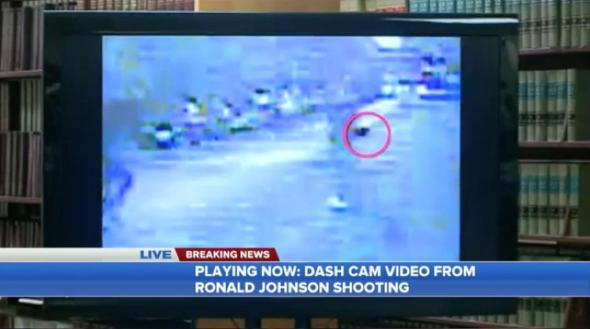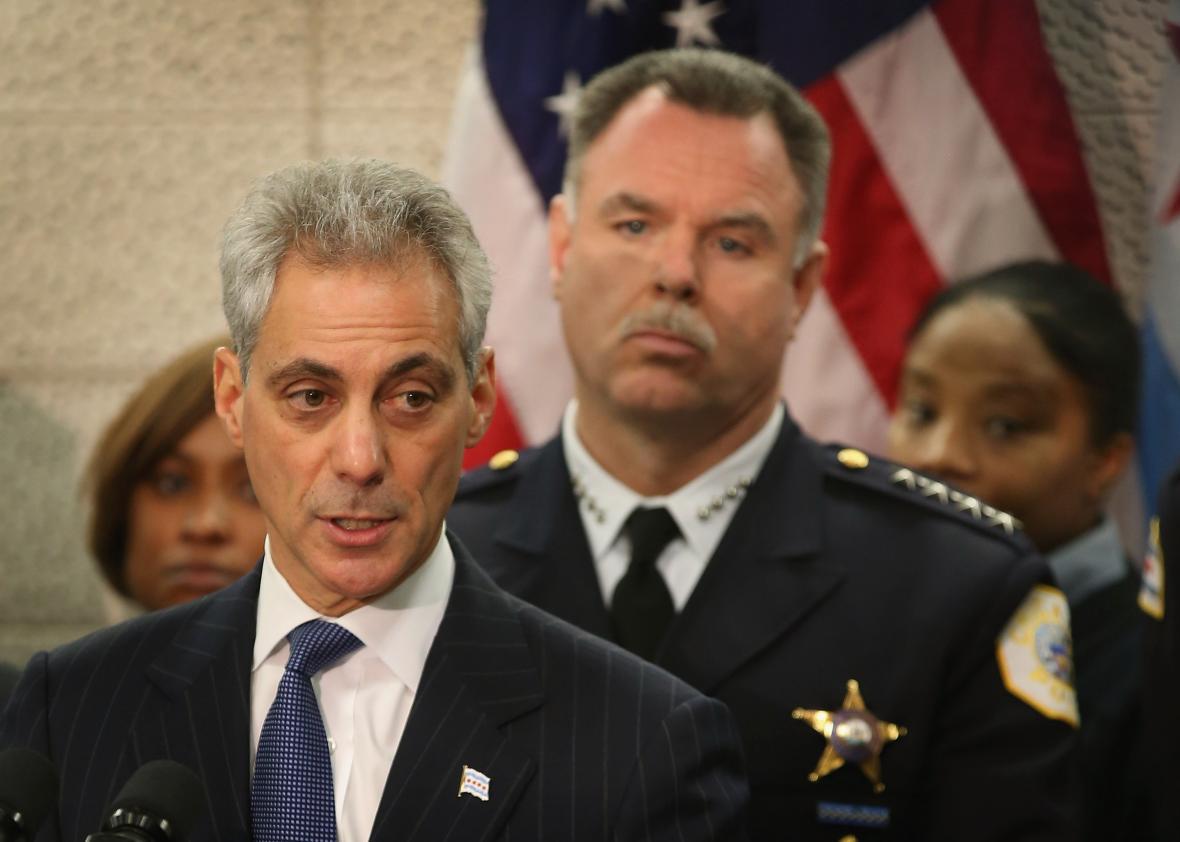Week three of Chicago’s policing crisis begins with an extraordinary pileup of news, as the release of a harrowing video showing the shooting death of 17-year-old Laquan McDonald at the hands of police officer Jason Van Dyke continues to reverberate.
On Monday morning, U.S. Attorney General Loretta Lynch announced that the Justice Department has opened an investigation into the Chicago Police Department’s approach to the use of force. Lynch said Vanita Gupta, a former American Civil Liberties Union lawyer who directs DOJ’s Civil Rights Division, will lead the inquiry into “whether or not the police department, as a systemic matter, has engaged in constitutional violations of policing.”
A few hours after Lynch’s remarks, Cook County state’s attorney Anita Alvarez announced at a press conference that a second, unrelated police shooting, which took place eight days before McDonald’s death, will not result in criminal charges, despite the fact that the police officer in this incident shot the victim in the back as he was fleeing.
Video footage of that shooting, which resulted in the death of 25-year-old Ronald Johnson III in the early hours of Oct. 12, 2014, was shown at the press conference for the first time, following a long legal effort on the part of Chicago Mayor Rahm Emanuel to keep it out of the public eye. The video shows that police officer George Hernandez was chasing Johnson after responding to 911 calls about a nearby shooting; Johnson had been one of three passengers in a car that was targeted by gunfire a few minutes earlier.
Hernandez and the other officers on the scene reported after the incident that Johnson had been armed with a gun and that a gun was recovered on the scene. But a lawyer for the Johnson family has disputed that account, saying he believes the gun was planted by officers and that video captured on a police cruiser’s dashboard camera would confirm that Johnson was not armed when Hernandez shot him. You can watch a slow motion version of the video below, via WGN 9 news:
But the video shown at Monday’s press conference is too blurry to confirm much of anything. Nevertheless Alvarez told reporters Monday that an enhanced photo still taken from the video is in fact clear enough to show Johnson was holding a gun. “I’m looking at this, and it appears to be an object in there,” Alvarez said, pointing to a still that was prepared for her office by the Regional Computer Forensics Laboratory.

Still via WGN 9 news
Alvarez added that the gun recovered on the scene had Johnson’s DNA on it and matched a live cartridge casing that was found in the car in which Johnson had been a passenger shortly before his confrontation with Hernandez. She also said her investigation had found that, though Johnson was running from Hernandez when he was killed, he was simultaneously running toward other officers, and could have turned around at any moment to fire his gun. In light of that, Alvarez said, it was reasonable for Hernandez to believe that Johnson represented a threat of death or serious bodily harm to him and his fellow officers, making him legally justified in his decision to use deadly force.
As with the McDonald case, the city of Chicago had been fighting in court to keep the video footage of Johnson’s death from being released for more than a year, on the grounds that it would inflame the public and create bias against the police officer. Last week, though, a humbled Mayor Emanuel told reporters that, in light of the judicial ruling that had forced the city to release the McDonald footage, the Johnson video would come out after all. That about-face was followed almost immediately by an announcement from Alvarez—who has been criticized for taking 13 months to bring charges in the McDonald case—that Hernandez was being investigated for possible criminal charges.
Monday’s announcement comes about two weeks after Alvarez announced the charges against Van Dyke, and a week after Emanuel fired the head of his police department in a move that was widely seen as an attempt to quell outrage over the city’s handling of the McDonald case.
It also follows the release of documents by the city of Chicago that revealed on Friday that at least five officers submitted false statements about McDonald’s death to their superiors shortly after the incident. According to the New York Times, the officers’ statements backed up Van Dyke’s claim that McDonald was threatening his life at the time of the shooting. The reports are clearly contradicted by the video footage of McDonald’s death.
“I am not covering anything up,” Alvarez told reporters Monday, after showing the Johnson video and stating that she wants to be as transparent as possible about the investigation that led her office to decide that there was no probable cause to charge Hernandez with a crime. “We’re in different times right now when we’re talking about transparency, and what the public wants to see,” she said.
Alvarez, who is facing the prospect of a difficult re-election campaign, added: “I have a tough job. … I think I have the hardest job in this county. I have to make decisions each and every day in cases like this and other cases that are pending in this criminal courthouse, and no matter what decision I make, someone’s going to be unhappy.”
In other Chicago news related to the fallout from the McDonald case, the police department’s chief of detectives announced his resignation on Monday, one day after the head of the Independent Police Review Authority, which investigates police use of force incidents, did the same.
